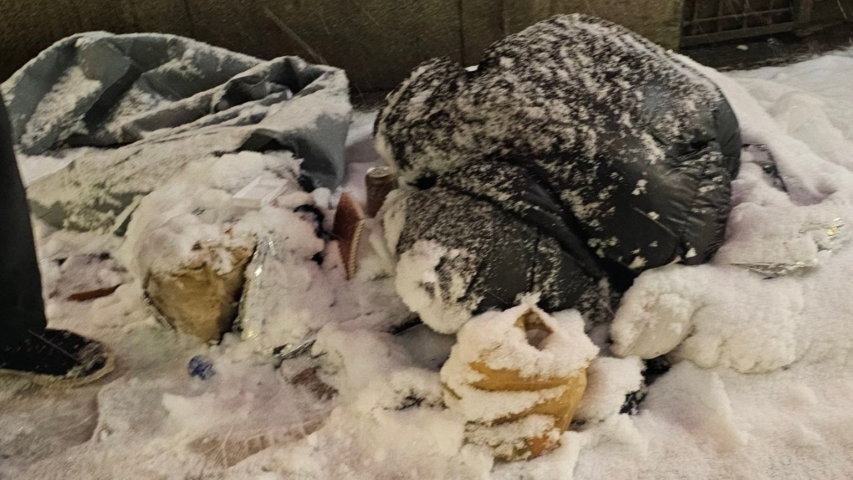
Sarah Blyth Gerzak, an advocate, has taken to sharing images depicting the plight of homeless individuals during a snowstorm in Vancouver. According to her, the municipal government's efforts to aid this vulnerable population are falling short.
In the heart of Vancouver's Downtown Eastside, advocate Sarah Blyth-Gerzak is shedding light on the struggles faced by the homeless during the ongoing winter weather. With snow-covered streets posing a serious threat, she asserts that the city's response falls short of providing adequate support, potentially leading to fatal consequences.
Blyth-Gerzak took to social media, sharing poignant images captured during her street walks, emphasizing that despite the city activating shelters and warming centres, many individuals remain exposed and vulnerable. Her message underscores the importance of visual documentation to convey the harsh reality on the ground.
Mayor Ken Sim, anticipating an impending snowstorm, posted a list of shelter locations, urging those without shelter to seek refuge. However, Blyth-Gerzak contends that the existing options are insufficient. The extreme weather shelters have daytime restrictions and capacity limitations, while warming centres primarily operate overnight.
"People should have a place to go to be warm all day until we find other solutions," Blyth-Gerzak emphasized, pointing out the challenges faced by individuals trying to access shelters, dealing with long queues, and ultimately resorting to wandering in the snow.
In response, the City of Vancouver highlighted "daytime warming locations" such as libraries and community centres. However, extreme weather can impact these facilities, leading to closures, as witnessed during the recent snowfall. The city assured the public of increased capacity this year, with additional shelters and warming centres opening during the cold snap.
Despite these efforts, concerns persist. Blyth-Gerzak and others call for more proactive measures, advocating for increased street-level outreach during extreme weather conditions. Non-profits and individuals have stepped up, providing essentials like sleeping bags, clothing, and blankets, but Blyth-Gerzak emphasizes the need for a more robust city-led initiative.
The urgency is underscored by a recent report from the B.C. Centre for Disease Control, citing a rise in hypothermia and frostbite cases among the homeless over the past decade. The report emphasizes the vulnerability of those exposed to cold conditions, compounded by factors such as substance use, disability, and diseases like diabetes.
The homeless crisis in Metro Vancouver is evident, with a 32% increase in the number of people without shelter since 2020, according to the 2023 homeless count. Tragically, the death toll among the homeless has surged, reaching at least 342 in 2022, more than doubling the annual average from 2015 to 2020.
As winter intensifies, Blyth-Gerzak's advocacy sheds light on the immediate need for comprehensive, hands-on measures to protect the homeless population from the life-threatening consequences of extreme weather conditions.















